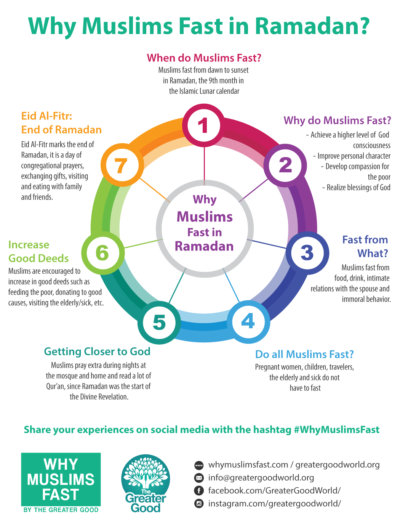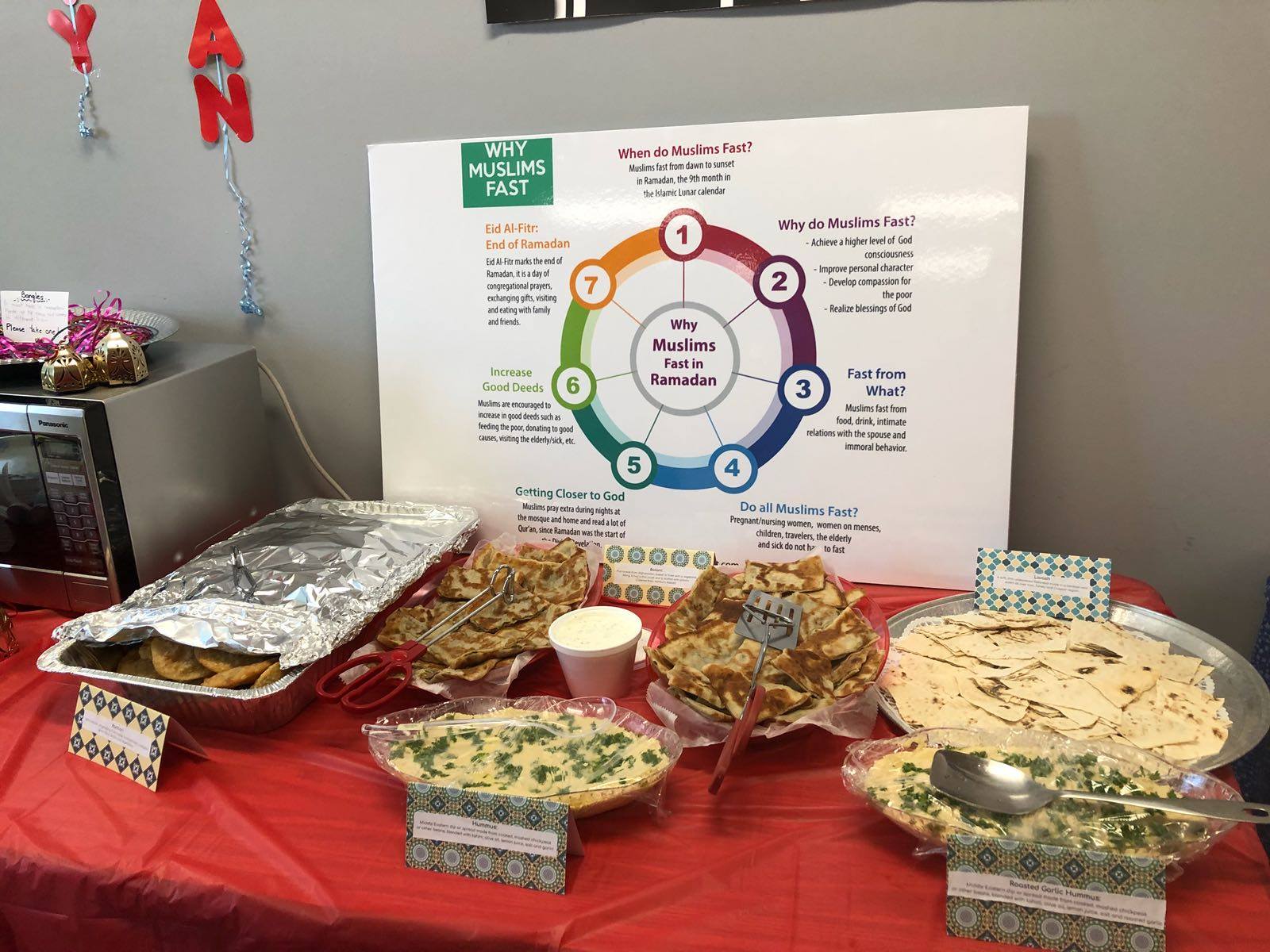About
Why Muslims Fast (WMF) a project of The Greater Good, was created to raise awareness about why Muslims fast during the month of Ramadan.
Islam is the second largest religion in the world, with close to 1.8 billion followers.
You might know a Muslim friend, neighbor, co-worker who is fasting during Ramadan or at least have heard about it.
A common question non-Muslims wonder is “why do Muslims fast in Ramadan?”.
There are many reasons behind fasting in Ramadan and this website aims to help you better understand the wisdoms behind this beautiful tradition.
Why Muslims Fast
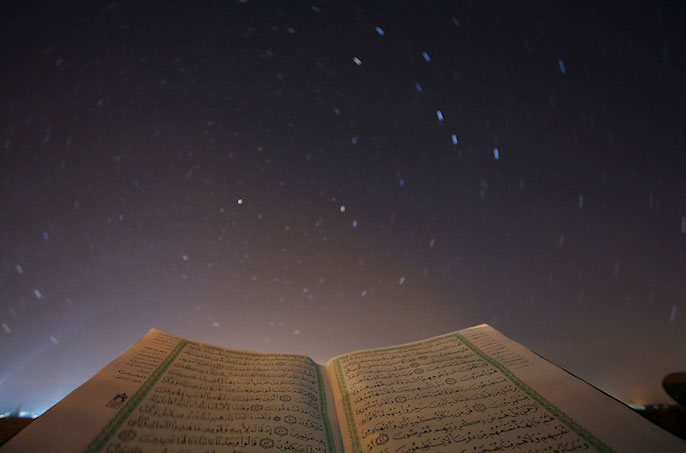
REVELATION OF QURAN
Ramadan is the month when the Prophet Muhammad (peace and blessings be upon him) first received the beginning of the Divine revelation of the Quran (final guidance for all mankind) from Angel Gabriel. The Quran commands the Muslims to fast during the month of Ramadan as a means of achieving God consciousness, among other reasons.
GOD CONSCIOUSNESS
The main goal of fasting in Ramadan is so that a Muslim can achieve a higher level of God consciousness. During Ramadan you have to refrain from food, drink and intimate relations with your spouse. Avoiding these lawful things for 30 days helps to train a Muslim to avoid the unlawful things year round. Muslims train themselves to remember that God is always watching and recording their deeds, which they will be accountable for on the Day of Judgment.
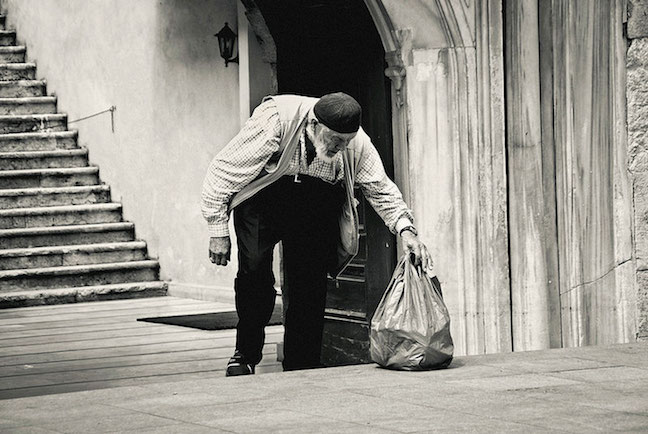

A PILLAR OF ISLAM
Fasting is one of five pillars in Islam. The five pillars of Islam are:
1) Declaration of Faith – To believe that God is one and follow the Prophet Muhammad (the last prophet sent to mankind). Muslims also must believe in the Prophets Adam, Noah, Abraham, Moses and Jesus among others.
2) Prayer – Muslims are required to pray to God five times a day, to remember Him, contemplate the true meaning and purpose of life and seek forgiveness and guidance.
3) Charity – Every year Muslims have to give 2.5% of their wealth to the poor and needy.
4) Fasting in Ramadan – Fasting is an annual obligation upon Muslims for 1 month to develop God consciousness, realize the blessings of God, compassion for the poor and needy and to improve one’s personal character.
5) Hajj (Pilgrimage to Makkah) – If financially and physically capable, Muslims are required to make the pilgrimage to Makkah (the first place of worship on Earth, started by Prophet Abraham). Hajj provides Muslims with an opportunity of self-renewal. Muslims from different parts of the world regardless of their status, race, color and culture, are brought together and united which acts as a symbol of equality.
During Hajj the wealthy and poor wear two white pieces of cloth, signifying we all are equal before God and judged according to only our deeds. Hajj also serves as a reminder of the Day of Judgment when Muslims believe people will stand before God.
IMPROVE PERSONAL CHARACTER
In addition to avoiding food, drink and intimate relations with one’s spouse, a fasting person is also required to abstain from bad behavior. Some characteristics that a fasting person should strengthen are:
- Patience – Not being able to eat and drink during the day is surely a means of increasing one’s patience, willpower and determination.
- Honesty – A fasting person can eat and drink when no person is watching and no one would know, but the honesty is in being truthful to God, as God sees and knows all, thus fasting helps to develop a person’s honesty.
- Avoid false speech and actions – Islamic tradition says that if a Muslim cannot avoid false speech and actions then avoiding food and drink is useless, meaning we should also refrain from bad behavior to help us improve our personal character.
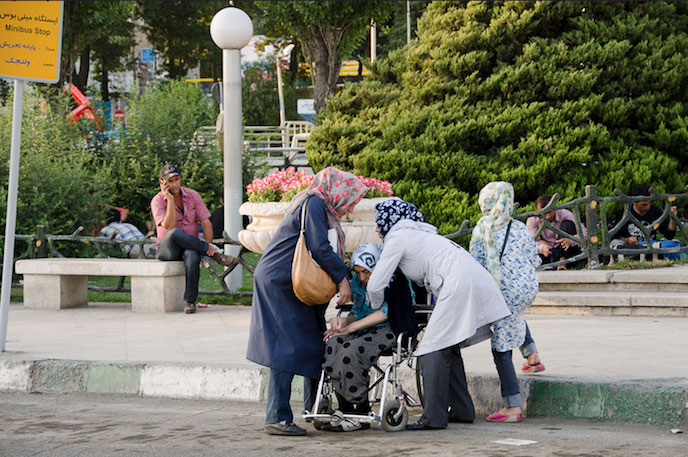

COMPASSION
Fasting is an excellent way to develop compassion and empathy for those less fortunate than ourselves, who do not have food, shelter and other blessings. It makes us think how we can become better people, how we can help the needy and how we can do more good.
What better way to feel what the hungry people in the world experience than by putting yourself in their shoes. We begin to feel compassion and empathy towards the poor, when we experience hunger for a small amount of time, we remember those people who are in this situation all the time, thus this should make one hasten to do acts of kindness and show compassion towards the less fortunate.
REALIZE BLESSINGS OF GOD
Fasting is a means to make us appreciate and be thankful for the many blessings of God. Giving up these blessings for a short period, we automatically begin to appreciate their value, when otherwise we would not. Thus fasting helps us to be grateful for the abundant blessings God has given us.

Infographic
Many times our non-Muslim friends will be curious as to why Muslims are fasting and what Ramadan is all about.
The best thing to do is to talk with your non-Muslim friends to tell them about Ramadan and fasting. But many times you cannot due to a number of reasons such as lack of knowledge or time, improper setting/circumstances, etc.
Thus we have developed a “Why Muslims Fast” infographic that you can use to share the basic information about Ramadan and fasting with your non-Muslim friends easily and quickly.
If they have more questions they can talk to you personally or you can refer them to our team.
The easiest thing you can do is post it on your social media profiles and or send it electronically via email, text message, etc.
You can download the infographic via these links:
